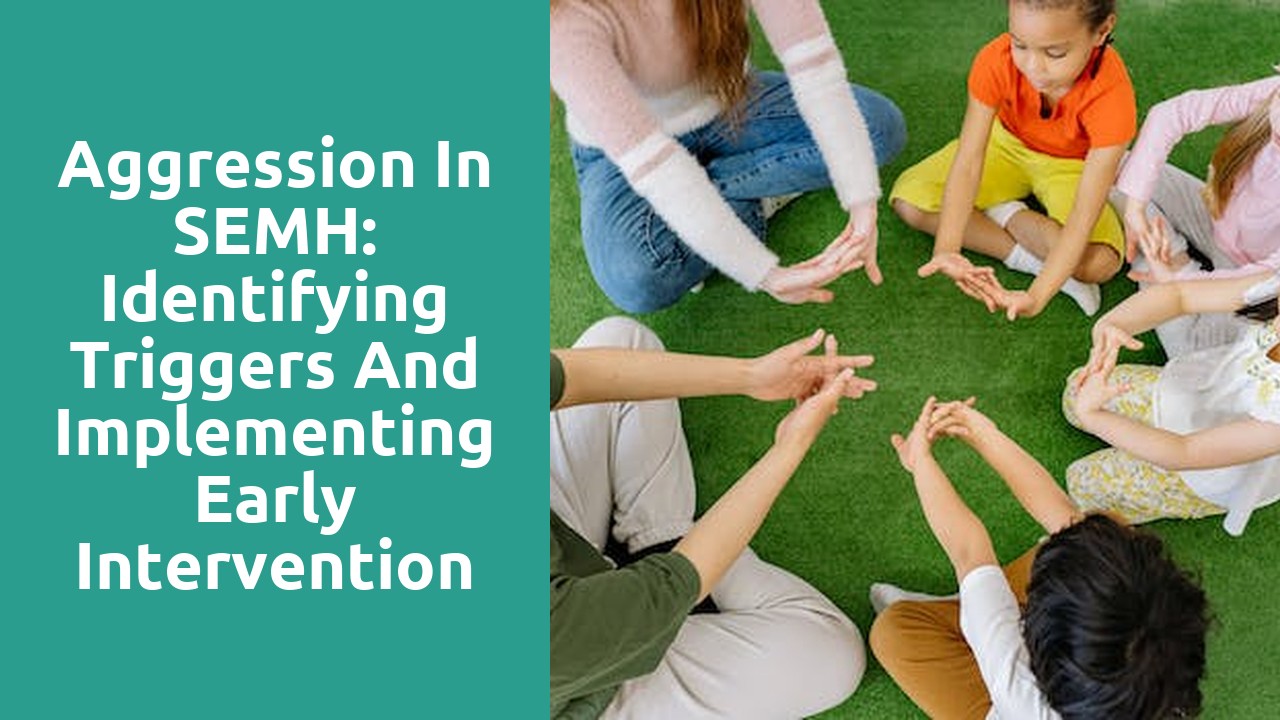

Emotional health plays a critical role in determining our behaviors and reactions, including aggression. When individuals experience emotional turmoil or instability, they may struggle to manage their emotions effectively, leading to outbursts of aggression. The link between emotional health and aggressive behavior is a complex one, with various factors influencing this connection.
One of the key factors contributing to this link is the inability to regulate emotions effectively. When individuals are unable to control their emotions, they may resort to aggressive behaviors as a way to express their frustration or anger. This lack of emotional regulation can be seen in individuals with conditions such as Oppositional Defiant Disorder (ODD) or Conduct Disorder (CD), where aggressive behavior becomes a common response to challenging emotions. Additionally, individuals who have experienced trauma or significant stress may be more prone to aggressive outbursts as they struggle to cope with their emotions.
While aggression is a common symptom in students with Social, Emotional, and Mental Health (SEMH) challenges, there are often hidden factors that contribute to these aggressive behaviors. Understanding and uncovering these underlying factors is crucial in developing effective strategies for managing and preventing aggressive outbursts.
One key hidden factor behind aggression in SEMH is the presence of unmet emotional needs. Students with SEMH challenges often struggle with managing their emotions and have difficulty expressing their needs effectively. As a result, they may resort to aggressive behaviors as a way to communicate their frustration, anger, or sadness. By acknowledging and addressing these unmet emotional needs, educators and support staff can play a crucial role in reducing aggression and helping students develop healthier coping mechanisms.
Aggressive outbursts can be extremely challenging to manage, particularly in individuals with social, emotional, and mental health difficulties. Early detection and prevention strategies play a crucial role in minimizing the frequency and intensity of these aggressive episodes. One effective approach is to create a proactive environment that promotes emotional well-being and addresses underlying triggers.
Regular and thorough assessments are essential for early detection. Professionals working with individuals with social, emotional, and mental health difficulties should closely monitor and identify any signs or patterns of aggressive behavior. This can be achieved through observations, interviews, and standardized assessment tools. By identifying early warning signs, interventions can be implemented promptly, helping to prevent eruptions of aggression. Additionally, it is important to involve the individual and their support network in this process, as their input can provide valuable insights and help tailor strategies to suit their specific needs.
Nurturing emotional wellbeing is a crucial aspect of reducing aggression in individuals with SEMH. When emotions are balanced and positive, aggressive impulses tend to diminish. One way to promote emotional wellbeing is by creating a supportive and safe environment. This can be achieved through fostering positive relationships, cultivating a sense of belonging, and ensuring that individuals feel valued and respected. When individuals with SEMH know that their emotions and needs will be acknowledged and understood, they are less likely to react with aggression. Moreover, providing opportunities for emotional expression and teaching healthy coping mechanisms can also contribute to a reduction in aggressive behavior. By helping individuals with SEMH develop emotional intelligence and providing them with tools to regulate their emotions, we empower them to navigate challenging situations in a more positive and constructive manner.
Aggression is a complex behavior that can stem from a variety of triggers. Understanding the role of triggers in aggression management is crucial in developing effective strategies to prevent and deescalate aggressive outbursts. Triggers can be internal or external factors that provoke a strong emotional response, leading to aggressive behavior in individuals with social, emotional, and mental health difficulties (SEMH).
Internal triggers refer to emotions, thoughts, or physical sensations that can ignite aggression. These triggers may include feelings of frustration, anger, or fear, as well as negative self-talk or a heightened state of arousal. External triggers, on the other hand, are stimuli in the environment that can elicit aggressive behavior. These triggers may involve situations of conflict, rejection, or a perceived threat to one's safety or well-being.
Identifying and understanding these triggers is essential in aggression management. By recognizing the specific triggers that lead to aggressive episodes in individuals with SEMH, professionals and caregivers can implement tailored strategies to prevent or minimize the occurrence of aggressive outbursts. This may involve creating a supportive environment that reduces the occurrence of triggering situations or teaching individuals effective coping skills to manage their emotional responses. Additionally, addressing and resolving underlying issues or stressors that contribute to the triggers can play a crucial role in reducing aggression.
Building a supportive environment is crucial in minimizing aggressive episodes among individuals with Social, Emotional, and Mental Health (SEMH) issues. Creating an atmosphere that promotes emotional well-being and provides necessary support can greatly help reduce instances of aggression. One way to achieve this is by cultivating a culture of empathy and understanding within the community or educational setting.
Empathy plays a vital role in building a supportive environment. When individuals with SEMH feel that others can genuinely understand and relate to their emotions, they are more likely to feel validated and less inclined towards aggressive behavior. Encouraging empathy can be achieved through various strategies, such as promoting open and honest communication, actively listening to one another's concerns, and fostering an overall sense of acceptance and inclusivity. Additionally, providing resources and training for caregivers, teachers, and other individuals working closely with those with SEMH can further enhance their ability to support and empathize with these individuals. By fostering a culture of empathy and understanding, we can create an environment that minimizes aggressive episodes and promotes emotional well-being for individuals with SEMH.